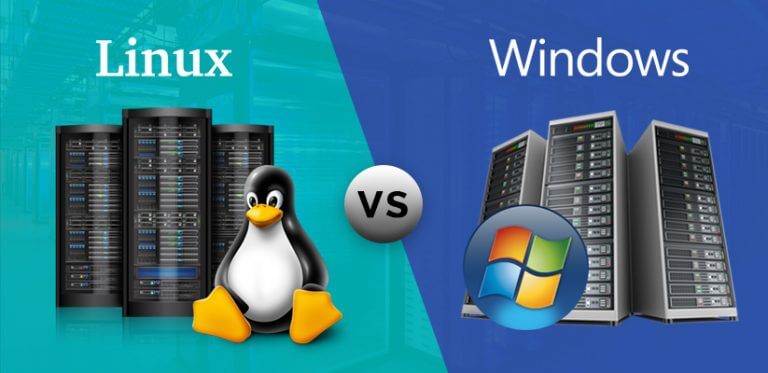A virtual private server (VPS) is a small computer hosted in a mother server that provides you with an environment for hosting a large number of applications. The uses of VPS are countless when it comes to hosting websites, hosting applications to hosting new test environments.
What is an Operating System?
OS is system software that manages computer hardware, software resources and provides common services for computer programs. The different gadget runs on different OS. The two most widely used OS in today’s market is Android and IOS. Meanwhile, VPS runs on two major OS which is Linux and Windows.
So, let’s dig into the differences between Linux and Windows VPS.
Linux VPS | Characteristics | Windows VPS |
Secured with Secure Shell (SSH) **SSH is used to manage VPS by typing in command lines – Makes Linux VPSmore resource-efficient High load: Linux VPS does not require its administrator to perform regular reboots. – Less reboots = higher performance
| Performance | Uses Graphical User Interface (GUI) **GUI makes navigation more user-friendly
The downside of GUI: – After every major or minor patch/driver or software update: Windows VPS must be rebooted or else will be rebooted automatically according to its internal schedule – Can be resource hungry if it is not optimized properly Reason: Windows OS has a lot of pre-installed applications which takes up a lot of CPU power when running in the background. |
Conclusion: Performance of Linux VPS surpasses Windows VPS | ||
Open-source – There is a huge community of professional coders who could review, detect, and comment on its vulnerability – Allow bugs and backdoors to be fixed in a split second – More secure because of its small user base
| Security | – Most of the computers on the internet runs on Windows OS – Cyber Criminals are constantly prying on Windows OS, trying to loophole within |
Conclusion: Windows have weak protection against cybercriminals. Because windows have weak protection and have a massive user base, cybercriminals naturally hack Windows rather than Linux | ||
– Ideal to host open-source software like PHP/Perl, Java, Python, ROR, SSH, CGI, MySQL and etc | Compatibility | – Runs only on Windows-specific software and applications for example ASP, MySQL, C#, MS Access and etc. |
Conclusion: Most of the available software are targeted at Windows OS because it has a larger market share compared to Linux. However, they come at a cost. Linux software is open source so they are all available for free. | ||
File Transfer Protocol (FTP) – Convenient tool for users to upload and download files – Building a website requires FTP so that you can upload media from your PC to your VPS – Another server access that you needed is a protection protocol (SSH) which is only available on Linux | Server Access | File Transfer Protocol (FTP) – Gives you the ease to move files around – There is no SSH on Windows OS – One way to install SSH is by installing PuTTY on Windows VPS. SSH.com |
Conclusion: Linux VPS gives users more access to the server and it is slightly more advantageous than Windows VPS | ||
– cPanel or Web Host Manager (WHM) | Control Panel | – Plesk |
Both interfaces are user-friendly | ||
– Backed by a huge community of professional coders – The coders work individually to find examine source codes to detect and fix bugs and backdoors | Support | – Developed by Microsoft – Company is well backed up by a team of professional IT supports which are ready to help you solve any problems at anytime |
Conclusion: Windows wins in this section. Whether you choose to host a Linux VPS or a Windows VPS, there is always a professional customer support team that is standing by to assist you 24/7. | ||
– Different for beginners | Ease of Use | – Intuitive GUI is a highlighted selling point which makes it very friendly for any users |
Conclusion: You need to learn how to use Linux if you wanted to host a Linux VPS but if you think that learning is too troublesome, and you are already used to Windows, then Windows is a perfect choice. | ||
There are 2 main Linux VPS options: Linux OpenVZ VPS and Linux KVM VPS – Both can be easily upgraded to handle an increased workload via your control panel – Only Linux OpenVZ VPS can be downgraded when required and it does not require users to reboot their VPS after upgrade installations | Scalability | – Can be scaled up but not scaled down – Changes only take effect after users reboot their server following upgrade installations |
Conclusion: – Both Linux VPS and Windows VPS are suitable for you if you are expecting an increase in server workload after a period of time – Advantage of a Linux OpenVZ VPS is you can downgrade anytime and does not require a reboot | ||
– Lower cost – Does not require to pay a license fee every year | Cost | – Users need to pay a license fee |
Conclusion: – If you do not mind paying a little extra, then you can choose Windows VPS hosting | ||




